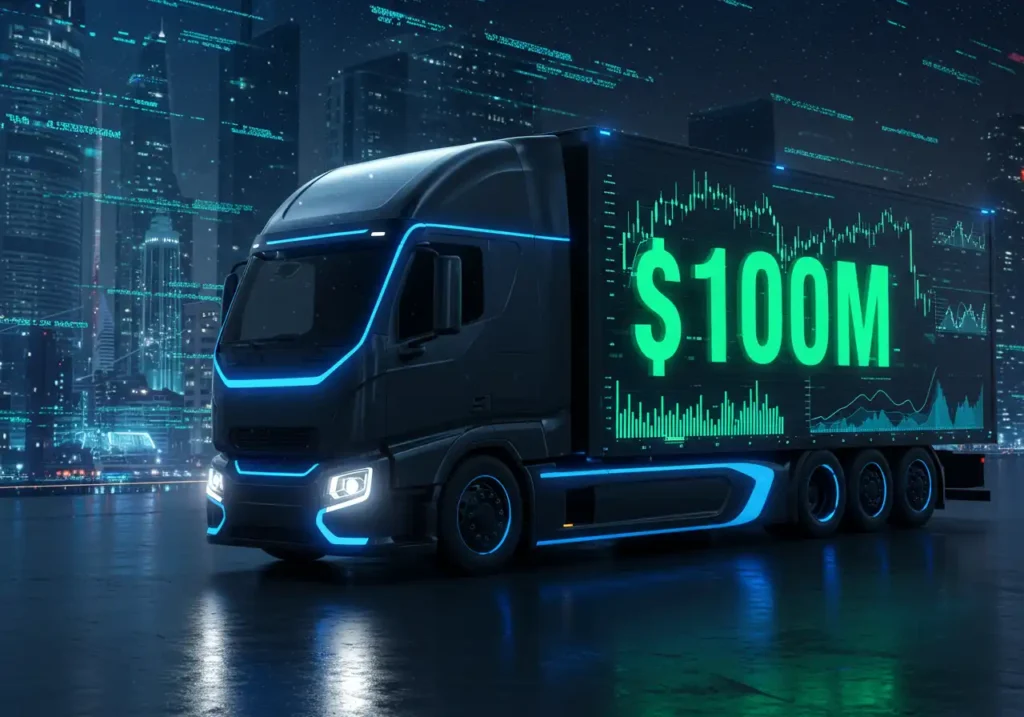Introduction
The transportation and logistics sector is undergoing a revolutionary transformation, with autonomous freight technology leading the charge. Einride, a Swedish autonomous trucking startup, has made headlines in 2025 with a remarkable $100 million funding round and the successful demonstration of a cross-border autonomous freight operation. With the backing of major investors and cutting-edge technology, Einride is reshaping how goods move across Europe and setting the stage for the global adoption of autonomous trucking.
In this post, we’ll explore the significance of Einride’s latest milestone, including their $100 million investment, their first cross-border autonomous freight journey, and the potential impacts of these advancements on the logistics industry.
The $100M Investment: A Major Step Forward
Einride’s recent $100 million investment round has been a game-changer for the company, positioning it as a leading force in the autonomous freight industry. The investment was led by a combination of institutional investors, including EQT Ventures and a strategic partnership with quantum computing firm IonQ. This funding will be used to scale Einride’s autonomous technology, expand its customer base, and enhance the capabilities of its self-driving trucks.
Einride’s autonomous trucks are designed to operate without a driver or even a cab, relying instead on a sophisticated remote “Control Tower” that monitors and navigates the vehicles via a proprietary software system called “Einride Driver.” The trucks are intended for use on fixed routes, typically on highways, where they can operate autonomously with greater ease and efficiency. With this new investment, Einride plans to expand its fleet and deploy more autonomous trucks on major freight routes, both within Europe and potentially expanding to North America in the coming years.
The Cross-Border Milestone: A Historic Achievement
 Einride recently achieved a significant milestone by completing the first-ever autonomous, cabless truck to cross an international border. The truck made its journey across the Ørje crossing, which connects Norway and Sweden, marking a major advancement for autonomous freight technology. This achievement is particularly notable because it demonstrates that autonomous trucks can not only navigate long distances but also operate seamlessly across national borders.
Einride recently achieved a significant milestone by completing the first-ever autonomous, cabless truck to cross an international border. The truck made its journey across the Ørje crossing, which connects Norway and Sweden, marking a major advancement for autonomous freight technology. This achievement is particularly notable because it demonstrates that autonomous trucks can not only navigate long distances but also operate seamlessly across national borders.
The autonomous truck used for this cross-border journey was fully equipped with Einride’s “Einride Driver” software, which allows the vehicle to be controlled remotely from Einride’s Control Tower. The truck made the journey without a human driver or even a cab, utilizing real-time data and AI-based navigation systems to ensure smooth and safe passage across the border. The truck also integrated with Norway’s Digitoll customs system, streamlining the goods declaration process and making the cross-border operation efficient and legally compliant.
This cross-border achievement underscores the potential for autonomous freight to revolutionize logistics on a global scale. By removing the need for human drivers and eliminating the logistical barriers posed by national borders, autonomous trucks can reduce delays, lower transportation costs, and improve supply chain efficiency.
How Einride’s Technology Works
Einride’s autonomous trucks operate with a sophisticated blend of hardware and software that allows for fully autonomous operations without the need for a cab or a driver. The key components of the technology include:
- Einride Driver: This software is the heart of Einride’s autonomous system, enabling real-time monitoring and control of the truck from Einride’s Control Tower. It uses machine learning, AI, and real-time data to navigate the vehicle safely and efficiently.
- Control Tower: Einride’s Control Tower acts as the remote hub where human operators monitor and oversee the truck’s performance. The tower ensures that the vehicle is operating safely, stepping in if needed to make manual interventions.
- Autonomous Hardware: The trucks are equipped with advanced sensors, cameras, and GPS systems that allow them to understand their environment, detect obstacles, and safely navigate fixed routes.
This technology is designed to work seamlessly on major highways and fixed routes where autonomous trucks can perform optimally. The trucks are programmed to operate safely in controlled environments and are particularly well-suited for long-haul freight transportation.
The Future of Autonomous Freight
 The success of Einride’s cross-border milestone and the investment in its technology signal that autonomous freight is not just a distant dream but a reality that is quickly taking shape. As the technology matures, we can expect to see the following trends emerge:
The success of Einride’s cross-border milestone and the investment in its technology signal that autonomous freight is not just a distant dream but a reality that is quickly taking shape. As the technology matures, we can expect to see the following trends emerge:
- Expanded Fleet Deployment: With additional investment, Einride plans to expand its fleet of autonomous trucks across Europe and eventually into the U.S. This will help streamline freight operations, reduce costs, and increase efficiency in the logistics sector.
- Regulatory Advances: The successful completion of a cross-border autonomous journey highlights the need for regulatory frameworks to evolve in order to accommodate autonomous freight. Countries and regions will need to update their laws to allow for international autonomous trucking operations.
- Environmental Impact: Autonomous trucks have the potential to reduce carbon emissions and improve fuel efficiency, as they can operate more optimally than human-driven vehicles. With autonomous trucks making up a larger portion of the freight market, we could see a significant reduction in the carbon footprint of the logistics industry.
Conclusion
Einride’s $100 million investment and cross-border achievement mark a new chapter in the development of autonomous freight technology. As the company continues to scale its operations and improve its technology, the future of logistics looks brighter and more efficient than ever. Autonomous trucks have the potential to revolutionize freight transportation, reduce costs, and improve the efficiency of the global supply chain.

